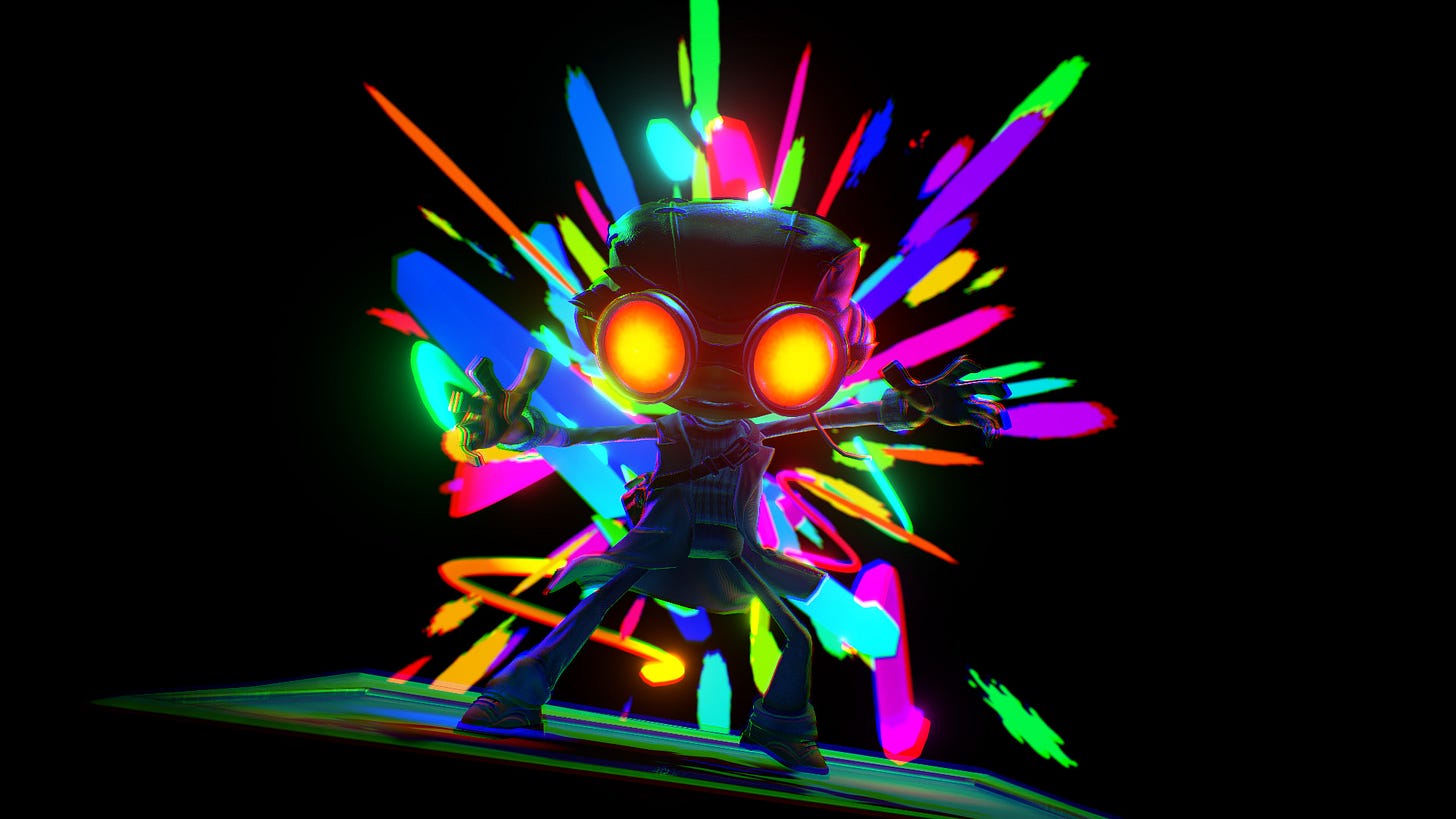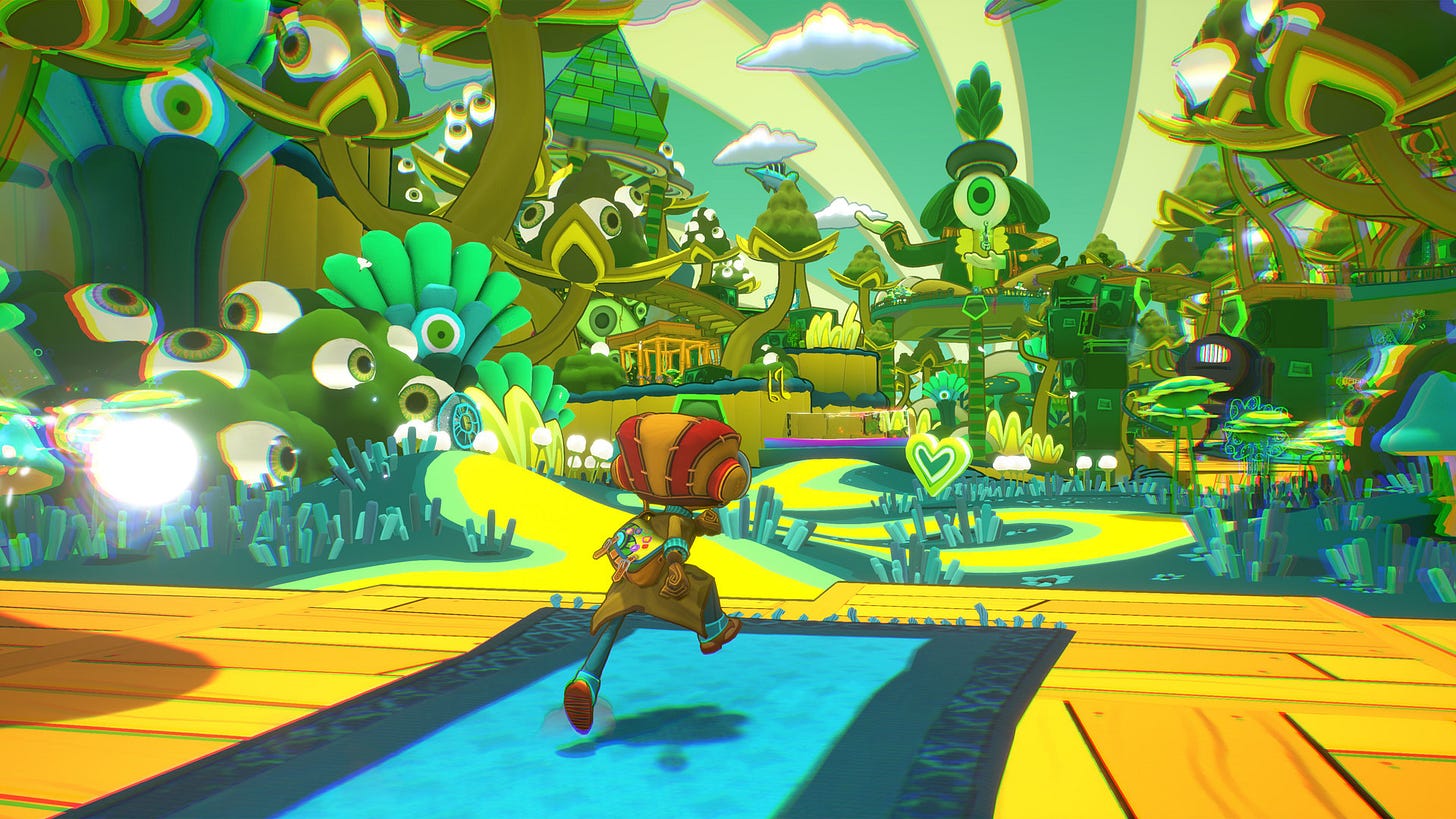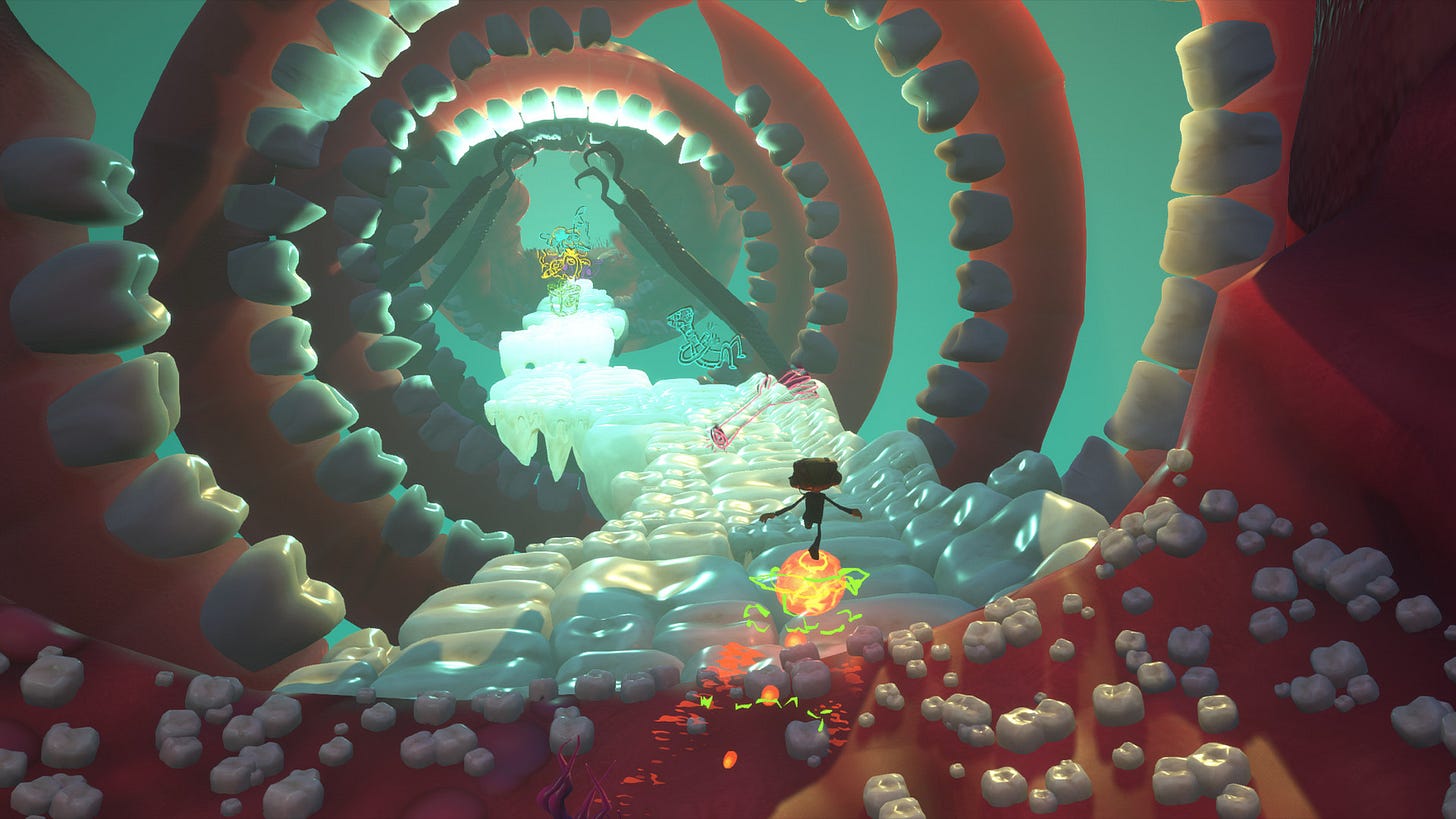I recently recommended the Psychonauts 2 documentary (and I still do—it is a unique and staggering artifact). Immediately after I finished that doc, the game went on sale for $20 on Steam, so I figured I’d give it a try. Overall its… solid! I wasn’t blown away, but it’s definitely good.

Psychonauts 2 is a 3D platformer/collectathon, steeped in the Old Ways of your Crash Bandicoots, your Jak and Daxters, and your Ratchet and Clanks. It feels astonishingly consistent with its predecessor, Psychonauts (2005), despite being released sixteen years later. As a result, almost everything about the game feels slightly dated, from the humor, which felt refreshingly irreverent in the mid-2000s, to the combat, which lacks the visceral feedback and reactivity of its modern high-budget competitors.
Even the platforming, the jumping/floating/swinging core of the gameplay loop, feels a bit janky. I often found it difficult to judge jumps [git gud lol] when compared to recent 3D platformers like Super Mario Odyssey. I get the sense that the creators were more focused on creating wacky imaginative environments and storytelling beats than they were on ironing out the wrinkles in gameplay mechanics.
Their focus on artwork & story definitely paid off for them—goddamn, the artwork is spectacular. I’m not going to go into great detail, but suffice to say that the levels and characters are rendered in riotous and expressive detail.

The story in particular does not feel remotely dated or out of touch. The plot expertly handles themes like mental health and intergenerational trauma with a level of gravitas approaching what they actually deserve. I felt like I was in safe hands throughout my playthrough, the writers proving time and again that they could navigate these complex topics with a steady and compassionate hand.
It’s also concise—I couldn’t name a single story beat or level that felt like filler. On the flipside, the open-world areas that you traverse between story levels feel almost entirely like filler. Luckily you’re under not obligated to explore these spaces thoroughly, and you can easily beeline from one objective to the next. It took me about ~20 hours to complete, and I’m sure you could do it in 15 if you ignored the side objectives.
To spoil as little as possible: the titular Psychonauts are a group of psychic superheroes, who, at their best, help people resolve their inner tensions and turmoil by diving into the deepest parts of their psyche. At their worst, they are spies and saboteurs, meddling with the brains of others to achieve their own demented ends.
You play as Raz, the Psychonauts’ newest intern. The story takes place almost immediately after the events of the first game, in which you saved the Psychonauts (and probably the world, idk) by resolving the daddy issues of a high-level agent who’d gone rogue. In the sequel you explore the Psychonauts’ legendary headquarters—“The Motherlobe”—to unearth the mysteries of its chequered past, and unravel a dark conspiracy that threatens to unleash turmoil upon the world (oOOooo).
Comparing the game to Pychonauts the First, I was struck by the fact that Raz now pretty much always tries to get the consent of his psychic subjects before entering their mind. It might sound minor, but this was a big (and welcome) tonal shift. I make some allowances for his age (10) and circumstances (terrifying), but Raz was extremely cavalier about jumping inside peoples’ brains in the original. Now he politely asks for permission before mucking around in their grey matter (so thoughtful).
 I did not consent to the teeth level, nopenopenope
I did not consent to the teeth level, nopenopenope
Still, sometimes his definition of ‘informed consent’ is laughably (or perhaps disturbingly) broad. At one point you need the help of an alcoholic recluse who can use his psy-powers to bring plants to life. You find him in his home, isolated and deeply inebriated. He rages at you for a while before roughly showing you the door—after which you’re immediately called back inside by one of his pet plants. With the man’s back turned, his plant-friend gives you nonverbal consent to poke around his brain, clearly (and adorably) miming its concern for the wellbeing of its creator. This kind of works if you assume that the plant’s personality is a manifestation of the man’s underlying feelings (rather than his openly stated feelings, which are that you should fuck off).
TL;DR: I wouldn’t strongly recommend this game—certainly not at its full price point of $60. But if you love imaginative cartoonish artwork, fun character writing, and heartfelt, empathetic storytelling, you may really love it. I’m into all of the above, so I didn’t regret a moment that I spent with the game, nor its predecessor (which was, mechanically, even jankier). The writing has grown up in the sixteen years since the first game, which was already fairly emotionally mature for its time. I just wish I could say the same for the gameplay, which still feels behind the curve.